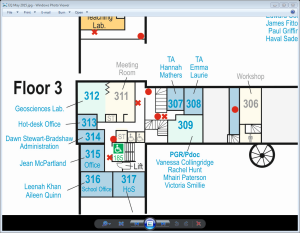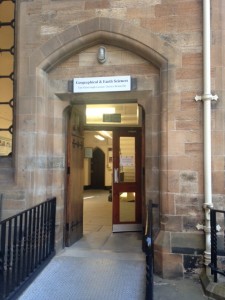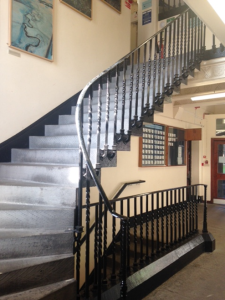
Medical Humanities Discussion Group
Chair: Dr Cheryl McGeachan
The medical humanities discussion group are very pleased to announce the times and topics for this Semester’s presentations.
All sessions take place between 1pm and 2pm in Room 311 in the East Quadrangle. Directions are provided below.
Wednesday 10th February 2016
Session 4 – From animal companionship to animal husbandry: exploring a more-than-human ethics for veterinary medical humanities.
Megan Donald (School of Geographical & Earth Sciences)
Veterinary medicine is based on both a sound knowledge of evidence-based medicine and a compassionate sensibility which attends to the complex emotional situations which occur between animal patients and human stakeholders. In essence, veterinary medicine involves crucial tensions between science, emotion and ‘the animal’. My PhD interrogates this issue by asking: how do vet students in particular manage to learn these skills which are so often considered opposing in nature? How is veterinary care, empathy and responsibility worked out in practice and place?
It’s in this discussion however that I wish to consider the position of the animal in veterinary medicine alongside the relevant theoretical approaches to animal ethics. Whilst on the one hand companion animals in veterinary medicine are largely imagined through notions of familial love at close proximity, ‘large’, farm animals are kept at a distance and cared from through animal husbandry, where their worth is measured by the products they provide for humans. The ethics of this scenario have been interpreted in various and contrasting ways, which I will introduce and hope to debate. The question that remains is: how can these ethical theories be critically worked with to create a caring geography that attends to the injustices faced by animals and respects the everyday emotional labour of the vet?
Wednesday 24th February 2016
Session 5 – Bedlam and Beyond: Madhouse Tourism in the 18th Century
Professor Alexander Kosenina (Leibniz-University Hanover, Germany)
In the 18th Century, Scottish shortbread and whisky, English tea and porter had a profile no higher in Western Europe than the idea and concept of Bedlam. This asylum in central London was one of the most popular attractions among travellers to Britain: Georg Christoph Lichtenberg, Sophie von La Roche and Heinrich Heine are only a few prominent visitors who reported, shocked and thrilled, their observations of the freak-show. Bedlam was a landmark of Enlightenment anthropology as well as a public school of early psychiatry, hospitalisation and social rehabilitation. The fashion of madhouse tourism originated in Bedlam and demonstrated a new interest in the inner nature of man and of mankind through the study of extreme behaviour. Some European examples will be discussed during this talk to provide a better understanding of the fascination of representing excentricities and even psychiatric ›cases‹ in art and literature.
Discussant: Professor Chris Philo (School of Geographical & Earth Sciences)
Wednesday 9th March 2016
Session 6 – Inequality in Medical Science Fiction
Dr. Anna Mcfarlane (School of Critical Studies)
In both literary theory and science fiction studies posthumanism has emerged as an important discourse over the last decade or so. Posthumanism offers tantalising philosophical propositions and seems to open up new possibilities for individual and social organisation by sloughing off humanistic preconceptions and prejudices. Medical progress is often used to illustrate philosophical and popular explanations of the posthuman as it increasingly offers longevity and augmentation, ostensibly illustrating new ways of being beyond the ‘human’. However, this posthuman discourse is rarely grounded in the material, equal availability of such medical advances, an issue which seems in theory to be confined to entirely different spheres; public health, sociology, politics, etc. I will discuss some examples of medical science fiction (including GATTACA [1998], Elysium [2013] and Louise O’Neill’s Only Ever Yours [2014]) in order to show how science fiction attempts to bridge these discourses, combining posthuman concerns with material, political considerations.
Discussant: Professor Jo Sharp (School of Geographical & Earth Sciences)
The meetings will all take place between 1-2pm in Room 311 in the East Quadrangle, in the Main Building at Glasgow University. Tea/coffee and biscuits will be provided.
Directions as follows:
Please enter through the first turret:
And walk upstairs (a lift is available if required to the right of this picture).





